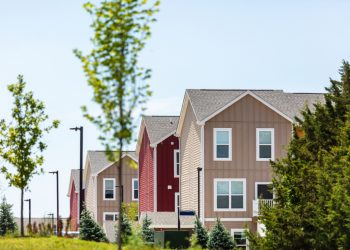RISMEDIA, April 23, 2009-(MCT)-There are would-be home buyers out there who are ready and able, but just not willing. They can’t bring themselves to pull the trigger.
The way they look at this angst-riddled market, buying a home could be akin to driving a new car off the dealer’s lot-instant depreciation.
Saying such a thing out loud inspires real estate agents to send me hateful e-mails, but this sentiment is nonetheless real and some consumers are paralyzed by it. Yes, home values can and do vary from neighborhood to neighborhood, but the painful overall stats are impossible to evade. And price declines apparently beget price declines, as many buyers just park on the sidelines and wait.
What if those buyers had insurance policies that would protect them if their homes lost value?
That’s the proposition of Joe Hanauer, chairman of Move Inc. He’s proposing that Uncle Sam offer the insurance as yet another variation on a housing bailout. “If you want to restart home sales, you have to deal with the biggest factor impacting sales today, which is the erosion of home values,” says Hanauer. “The avalanche of falling home prices continues to bury consumers in fear, uncertainty and doubt,” says Hanauer, who formerly headed Coldwell Banker’s operations in Chicago.
He’s shopping the insurance idea around Washington, including talks with Department of Housing and Urban Development Secretary Shaun Donovan and “whoever will listen,” he says.
Hanauer suggests such a plan could play out in several scenarios, depending on how much of the tab the government picked up and how much the sellers and/or buyers would chip in. The premium would amount to 1% to 3% of a home’s purchase price, and the insurance would pay off if the house were sold for a loss after three years or more.
It would cover a loss of up to 10% of the price paid. But if the house were sold for a gain, those sellers would reimburse the government for part of the profit, although Hanauer did not suggest how much.
He expects the costs of the plan would range from $20 billion to $150 billion, depending on how much of the insurance would be underwritten by the federal government and how much by consumers, and on how much prices declined.
This kind of coverage exists in the private sector, though it’s relatively new and untested. For example, EquityLock Financial, a company based in Utah, offers contracts-as opposed to insurance policies-that agree to pay homeowners if they lose money when they sell later, an amount equal to the percentage of the downturn of their local market, based on an agreed-upon home-price index.
Steven Senter, broker/owner of Keller Williams Fox Valley Realty in St. Charles, Illinois, says his company began representing EquityLock in Illinois several weeks ago, and has had a couple of deals that used it.
Senter says some form of price reassurance could, indeed, goose sales on a broad level, though he says the market also is hampered by the strained job market and tight mortgage-lending standards.
But Hanauer says he’s convinced the problem outstrips the capacity of the private sector to provide insurance. “The federal government, simply because of the scope and scale and the kind of muscle that would be needed, would have to do it,” he says.
However, the federal government already appears to have contemplated the idea and said no, thank you.
“I don’t think we would be either willing or able to target house prices,” said Federal Reserve Chairman Ben Bernanke at a conference in December, when asked about the possibility of government price insurance. “I think that would be an impossible thing to do, given the size of the housing market.” But December seems like a long time ago, given what’s happened to the economy, and Hanauer is undeterred.
© 2009, Chicago Tribune.
Distributed by McClatchy-Tribune Information Services.









